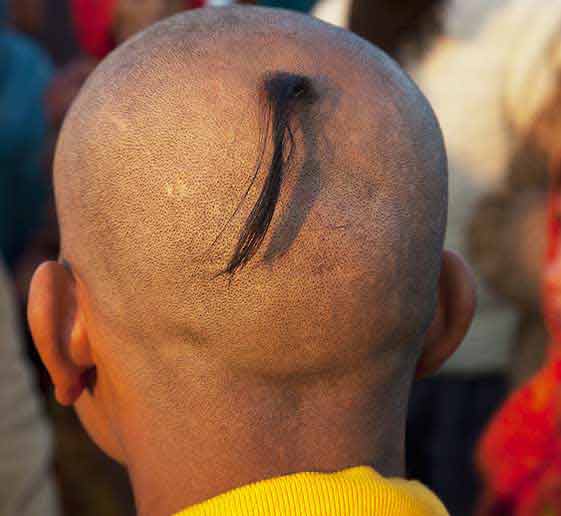Why is the tonsure (Mundan) performed?
It is generally performed three times in a Hindu's life, as the outer skin of a child's brain is extremely delicate. Therefore, according to popular belief, the tonsure ceremony is performed at a certain age. In Hindu rituals, it is called "Chudakarma." After this, it is mandatory for the child to wear a Shikha. The Shikha is an integral part of Hindu rituals. Hindu religious texts prescribe the use of a Sutra along with the Shikha. After the Yagyopavit ceremony, the child gains the right to study the Vedas. For such a Brahmachari, rituals like Sandhya Vandana and other rituals become essential. Because adornment was forbidden during self-study, it was natural for a Brahmachari to always shave his head.
Munning is also required if someone in the family dies. The person performing the last rites of the deceased is required to shave, but the Shikha must remain. Avoiding shaving or cutting hair after the tonsure (mumsun) results in a virtuous expression on the face. Grief and sadness are also expressed through a shaved face.
The initiation into the fourth stage of renunciation, i.e., renunciation, requires shaving the head. However, the tuft of hair is also abandoned at this time, meaning the tuft of hair is no longer on the head. This indicates that rituals are no longer necessary. A renunciant, constantly immersed in the realization, "I am not the body, but the soul," has no attraction to adornment, and therefore always shaves his head. Renunciation means the renunciation of Lokeshana (the desire for honor), Putreshana (the desire for children), and Vitteshana (the desire for wealth). This means that a renunciate performs his duties naturally, without these three desires, for the welfare of the people.
There is also a tradition of shaving the head before visiting Tirupati Balaji. Women also shave their heads at this pilgrimage site after a wish is fulfilled, a practice known as "Sundaryadaan."
Similarly, in Bengal, widows have a tradition of shaving their heads. This also indicates a renunciation of adornment.


